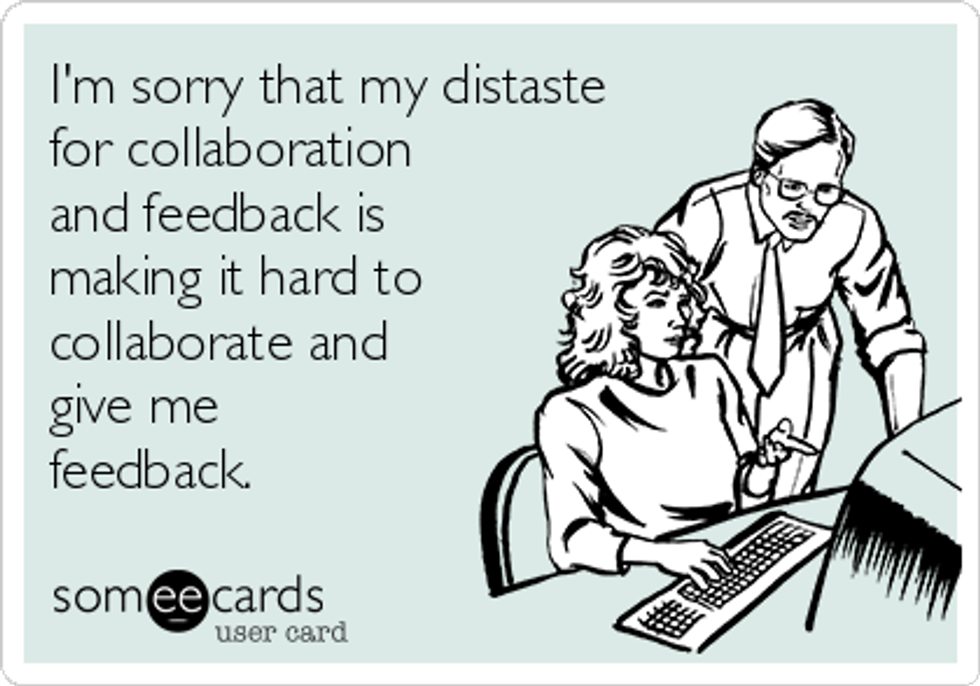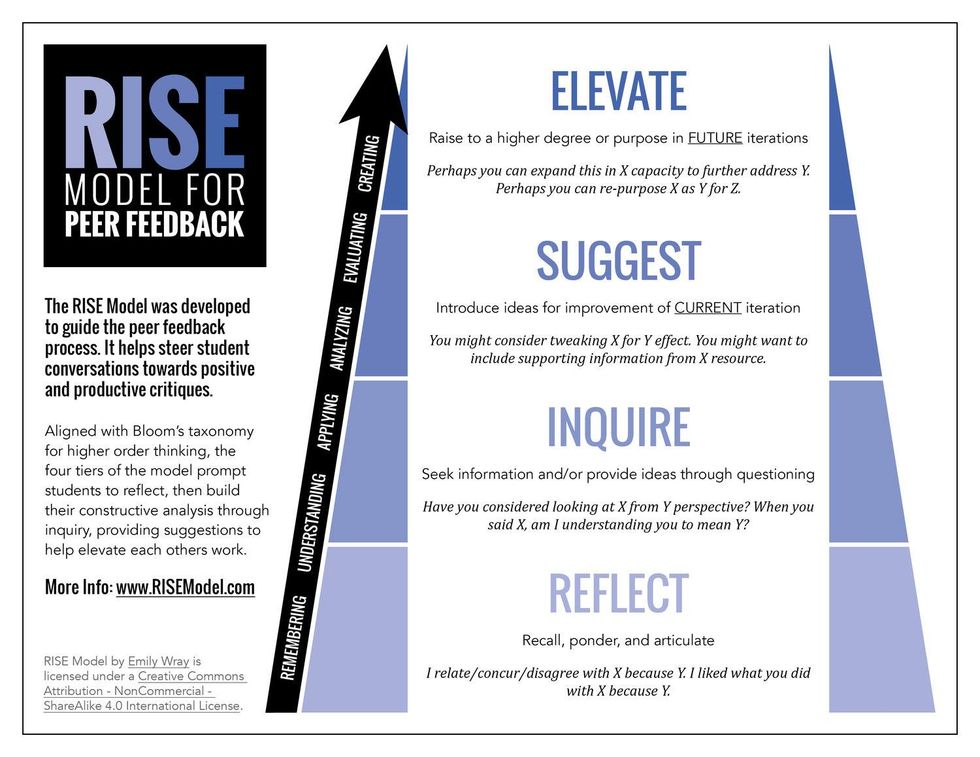Feedback is probably one of my top 5 favorite things. I swear I'm not even joking. The rest of the top 5 consists of pizza, video games, my boyfriend and my family (in no specific order....except pizza might be #1.) If anything, how highly I rank it only exhibits how feedback is the shit and you should learn to embrace it.
So yes, feedback is amazing, but it may not always seem that way. When I first started to share my content with others, whether it was a story I wrote or something I designed, I was TERRIFIED of letting anyone see, let alone critique my work. And I'll be super honest, I never really took criticism well before and felt like people were basically just telling me my work was trash and I should start again or try something new. For too long I allowed the opinions of others to completely dictate my work until it didn't really feel like mine anymore.
That is, until I learned how to embrace it.
So I think it's safe to say that we've all been there. Pissed off because someone gave us a critique on something (hair, outfit, design, script, WHATEVER) and brought to light the things we probably knew were wrong all along but didn't change or simply failed to notice. And yes, it sucks! But it doesn't have to, I promise!
The key to embracing feedback without letting it crush what you've done-to-date is keeping in mind not all feedback is helpful! Avoid getting feedback from people who:
1. Don't support your goals.
2. Are negative AF.
3. Say things like "I loved it, great job." (Sorry Mom, but that isn't helping anyone)
4. Don't offer suggestions for improvement.
Okay, now you know who to avoid feedback from, awesome. So who should you be seeking feedback from? Odds are it should be someone well-versed in your field, someone who supports your mission and most importantly, someone who will provide constructive suggestions to help elevate your work!
Getting feedback that only tells you good job or bad job will certainly make you pleased with yourself or frustrated beyond belief, but it won't actually make your content any better. If someone tells you they loved it, ask why. Did they say they hated it? STILL ASK WHY! You may not always agree with their thoughts but the WHY is equally as important as the WHAT and certainly not something worth overlooking.
Keep in mind that not every piece of advice you get needs to be applied. It is super important to remember at the end of the day, your work is your own and you have the final say. Seeking feedback is key, but being selective with what you apply is just as important.
Another thing that is a must in learning to embrace feedback is learning to give quality feedback. By taking the time to learn what qualifies good feedback, I've learned how to embrace it in a far more genuine way. Luckily I have access to one of the most amazing and intelligent women in the world, Emily Wray. An educator at Full Sail University, Emily has developed the RISE feedback model and it is basically the greatest feedback cheat sheet ever invented.
By embracing the RISE model and utilizing it, I have become far more adept at communicating with other creators and working collaboratively to elevate both their work and my own. The RISE model can help direct you in providing quality feedback by reflecting on the work, inquiring about what you may not understand, suggesting improvements and elevating future iterations all in a meaningful way.
So why try embracing feedback? Because it will improve your work of course! As creators, we are making things for an audience and their opinion should matter to us in our creative process. By seeking feedback you can gauge an understanding of how your audience will be impacted by or interpret what you've put out there. By actively seeking a genuine critique of your work, you will only improve your future iterations.
So next time someone tears apart your work and you're ready to throw it all away, instead find the opportunities to improve and make it happen!





















